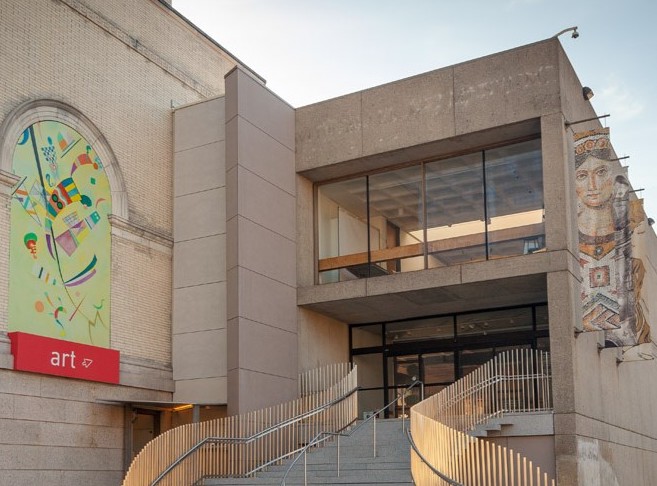Rachel Parikh sues Worcester Art Museum for discrimination

Rachel Parikh, a former curator of the Worcester Art Museum, is suing the museum leaders for allegedly being “mocked and ridiculed because she is a brown-skinned South Asian” Indian woman.
In a 64-page lawsuit filed in Worcester County Superior Court last month, Parikh who resigned from her job as associate curator of the arts of Asia and the Islamic World last fall, alleges she was “subjected to a hostile and offensive work environment,” WBUR reported.
In the civil lawsuit, a lawyer for Parikh detailed a slew of damning allegations against Director Matthias Waschek, as well as Parikh’s supervisor, Claire Whitner.
The complaint alleges Parikh endured “racism and unwelcome and offensive behavior” on multiple occasions, including while she worked inside the museum and attended social gatherings at Waschek’s invitation, and as she sought to report the alleged incidents.
READ: Indian American engineer sues defense contractor for Hindi language discrimination (August 1, 2023)
The suit also names four members of the board that oversees the museum as defendants.
In May 2022, the museum hired an outside consultancy firm, LAM & Associates, to investigate Parikh’s claims of harassment and retaliation.
In the firm’s final report delivered in July — a copy of which was included in Parikh’s complaint — the authors said its investigator, Laurie Margolies, could not substantiate Parikh’s claims with other colleagues but found her statements “credible.”
Parikh quit two months later, saying in her notice that the museum failed to uphold its own policies, according to the complaint.
“The Board had endorsed and approved the discriminatory and retaliatory behavior in complete disregard of Dr. Parikh’s rights by failing to take her seriously, and refusing to hold Mr. Waschek accountable even though the outside investigator had concluded that Mr. Waschek’s behavior was completely unacceptable,” the complaint reads.
After the report’s release, the museum board required Waschek to undergo “further training and efforts to increase DEIA efforts at the Museum,” according to documents provided to WBUR.
Parikh, who is an expert in South Asian and Islamic art with a focus on works on paper as well as arms and armor, told WBUR that she left the art she loved because she had lost faith in museum leadership.
“I buried myself in my work, because I really enjoy being a curator. I made that commitment to my position and especially as a curator of Asian art or non-western art, to me championing that kind of material — in a western institution and in the United States — is incredibly important,” she said in an interview.
“… But the day-to-day was incredibly difficult, because I was constantly on edge. I was just waiting for a comment to be made or something to happen.”
Parikh holds a PhD in the history of art and architecture from the University of Cambridge in the United Kingdom and previously worked at the Art Institute of Chicago, the Metropolitan Museum of Art in New York and Harvard Art Museums.
Parikh’s lawyer described in the complaint that Whitner, director of curatorial affairs and curator of European art, refused Parikh’s request to hire her under the “associate” title because “it would not be ‘fair’ ” to a colleague the complaint describes as a “white woman” with the “assistant” title.
Parikh’s lawyer said in the complaint that this did not make sense to Parikh, as she had about twice as many years of experience as her peer.
According to the complaint, Whitner, at Waschek’s request, allegedly also told Parikh about a year after she was hired to “look the part” of a curator, suggesting she “zhush up” her look and “wear makeup, perhaps little earrings, a necklace, a ruffled blouse” to work.
The complaint said that “WAM’s employee handbook does not require curators to do any of the things that Ms. Whitner stated she and Mr. Waschek felt Dr. Parikh must do.”
In the complaint and an interview with WBUR, Parikh said both men asked intrusive questions about her cultural heritage, referencing a ‘90s British television show featuring an Indian family.
More than once, Parikh alleges, the two white men imitated an Indian accent while discussing the show. Parikh called her work experiences mentally exhausting and said the stress took a physical toll.
“It took me back to a place where I was, you know, a kid and being bullied for being brown, basically,” she was quoted as saying.
“So it was basically reliving the trauma that I’ve had that I’ve been trying to work through as an adult. It felt like this kind of tidal wave that just hit me out of absolutely nowhere. It brought back so much of the feelings of anger and hurt and disappointment.”

